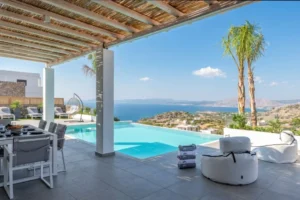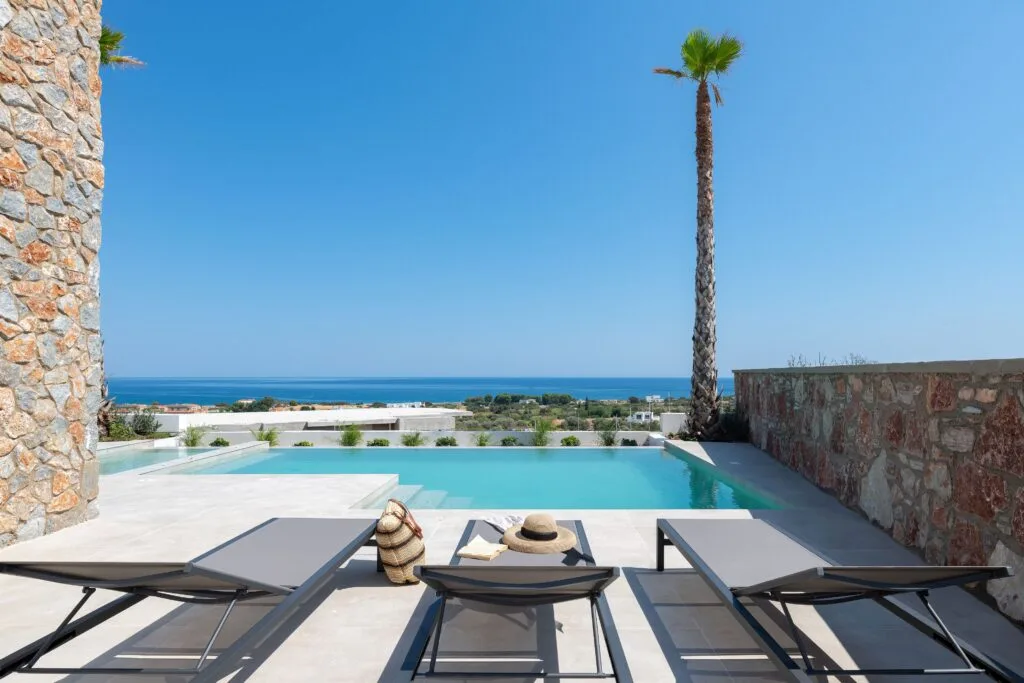

You’ve dreamed for years about buying a home in Greece – a place with a stunning sea view, direct access to the beach, and your favorite taverna within walking distance. Now that you’re ready to make that dream come true, it’s important to think about the different types of ownership you can choose. These forms determine how you can use the house and what your rights and responsibilities are. Here is an overview of the main types of ownership in Greece:
With horizontal ownership, you buy part of a building, such as an apartment or basement, and get a share in the common areas, such as stairwells, parking spaces and gardens. This is often called an “apartment right” in the Netherlands. The percentage of common areas you own can vary between owners.
If you want to build additional amenities, such as a swimming pool or a barbecue in a common area, you may need to get permission from the other owners. This may require a permit, often a “minor” permit. Depending on the type of work you want to do, permission from all owners or a majority of them may be required. An engineer can review the specific conditions for permits.
Vertical ownership often involves a building lot. Here you own both the building and the surrounding land. Unlike horizontal ownership, there are no common areas that are shared. This often makes vertical properties more independent, although there may be exceptions, such as shared parking spaces or other amenities.
Note: There may be regulations established by the original owner of the land that may contain restrictions on the use of the property. It is advisable to have these regulations checked by an attorney before purchasing a property horizontally or vertically.
With exclusive ownership, there is only one owner. This person has complete freedom to sell gift or bequeath the property without the consent of others.
With joint ownership, the property is in the names of two or more people, such as partners, relatives or business partners. The ownership ratio may be equal (for example, 50/50) or one of the owners may have a larger share. Each owner can trade, sell or bequeath his or her share without consulting the other owners.
Usufruct gives a person the right to temporarily use a property and derive income from it, while another owns bare ownership. For example, a father can gift his home to his child, but retain usufruct himself. This means that the father continues to use the property and receive income from it, while the child has bare ownership. Once the usufruct ends, the child becomes full owner of the home.
During the period of usufruct, both the usufructuary and the bare property owner must sign the deed of sale if the property is sold. The grant of usufruct must be arranged by a Greek notary, who can determine whether the usufruct is temporary or lifetime, with lifetime being the most common choice.
With this information, you will be better prepared to choose the right form of ownership during the purchase of your home in Greece.